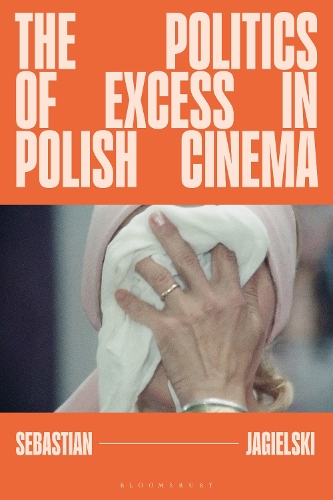
The Politics of Excess in Polish Cinema
(Hardback)
Publishing Details
The Politics of Excess in Polish Cinema
By (Author) Sebastian Jagielski
Bloomsbury Publishing PLC
Bloomsbury Academic
19th February 2026
United Kingdom
Classifications
Professional and Scholarly
Non Fiction
Film history, theory or criticism
Social and cultural history
Physical Properties
Hardback
272
Width 156mm, Height 234mm
Description
Departing from standard histories, this book draws on the theory of excess in film to provide a re-examination of Polish cinema history following the great crisis of 1968, which saw the expulsion of Polish Jews, persecution of students and independent artists, and subsequent imposition of martial law.
Employing a transnational and decolonial lens, Sebastian Jagielski argues that beyond the binary of state-endorsed and official 'opposition' media, there exists a range of subversive and radical films. He provides close readings of key examples such as Ivy (Bluszcz)(1982), Man of Marble (Czlowiek z marmuru)(1976) and The Wedding (Wesele)(1972), considering their depiction and transformation of emancipatory ideals born out of Western countercultural movements. He also explores the filmmaking practices of directors like Andrzej Wajda to Andrzej Zulawski, examining their use of subtext, seemingly lurid narratives and subversive embedded gestures, produced against the backdrop of Communist Poland's censorship practices. In doing so he proposes a critical revision of the normative cinema of moral anxiety.
He goes on to consider how on screen depictions of sexuality intersect with various modes of difference, highlighting the impact of racism, homophobia, misogyny, and classism. Rejecting a linear narrative in favour of a fragmented history, Jagielski uncovers the untold stories of Polish cinema's subversive influences.
Author Bio
Sebastian Jagielski is Assistant Professor at the Film History Department of the Institute of Audiovisual Arts at the Jagiellonian University, Poland. He is the author of Masquerades of Masculinity: Homosocial Desire in Polish Cinema (2013). He has published articles in Studies in Eastern European Cinema and Studies in European Cinema.
